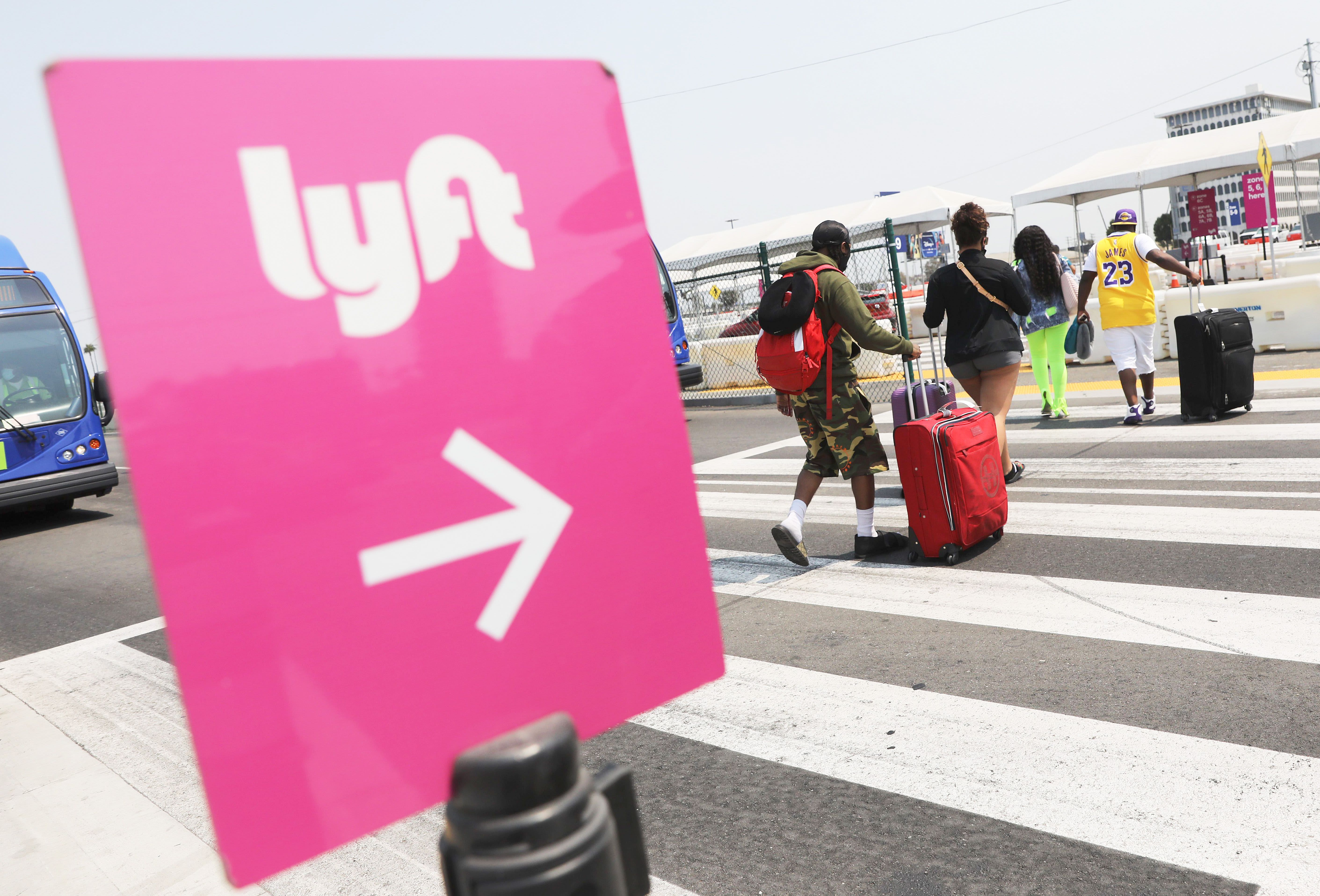
Air travelers walk toward a Lyft pickup area at Los Angeles International Airport (LAX) on August 20, 2020 in Los Angeles, California.
Mario Tama | Getty Images
Lyft has partnered with Epic, one of the largest electronic medical providers, to make it easier for hospitals to order rides for their patients.
Lyft’s area of focus in the medical sector is nonemergency medical transportation, a $3 billion market in the U.S. alone. The company is increasingly finding that insurance payers — particularly Medicaid plans that cover low-income people — are willing to foot the bill for members’ rides. When patients don’t have a convenient way to see a doctor, they often miss visits and forgo care.
All of that can lead to costs down the line, if a patient’s health deteriorates.
The integration with Epic means that hospital staff can book a Lyft ride in the patient’s record via a service called “Concierge.” Within the system, they’ll see a side panel where they can select the appointment date, pickup and drop-off time, and the patient name. Hospital staff can also track the patient’s ride within Epic to determine when they’ll arrive.
Patients won’t need the Lyft app to get to the hospital and back.
The integration also provides a better way for hospitals to collect data to determine the true impact of their transportation programs, according to Lyft. Eventually, more health systems might choose to cover the rides themselves rather than relying exclusively on brokers, who serve as middlemen between the plan members and the transportation provider.
“Previously it was more challenging from a data perspective to measure and assess the impact of these programs,” said Megan Callahan, the vice president in charge of Lyft’s health business, in an interview.
Callahan said Lyft doesn’t yet integrate with Epic’s main competitor, Cerner, but she didn’t rule it out. Lyft already has a relationship with another medical record company in the space, Allscripts.
She said that the tie-up with Epic makes sense because of the overlap between the companies’ customers. “About 30 percent of Epic’s health system customers are also our customers,” she said.
Callahan said two hospital networks have signed up so far: Ochsner Health in Louisiana and Tampa General in Florida.






















